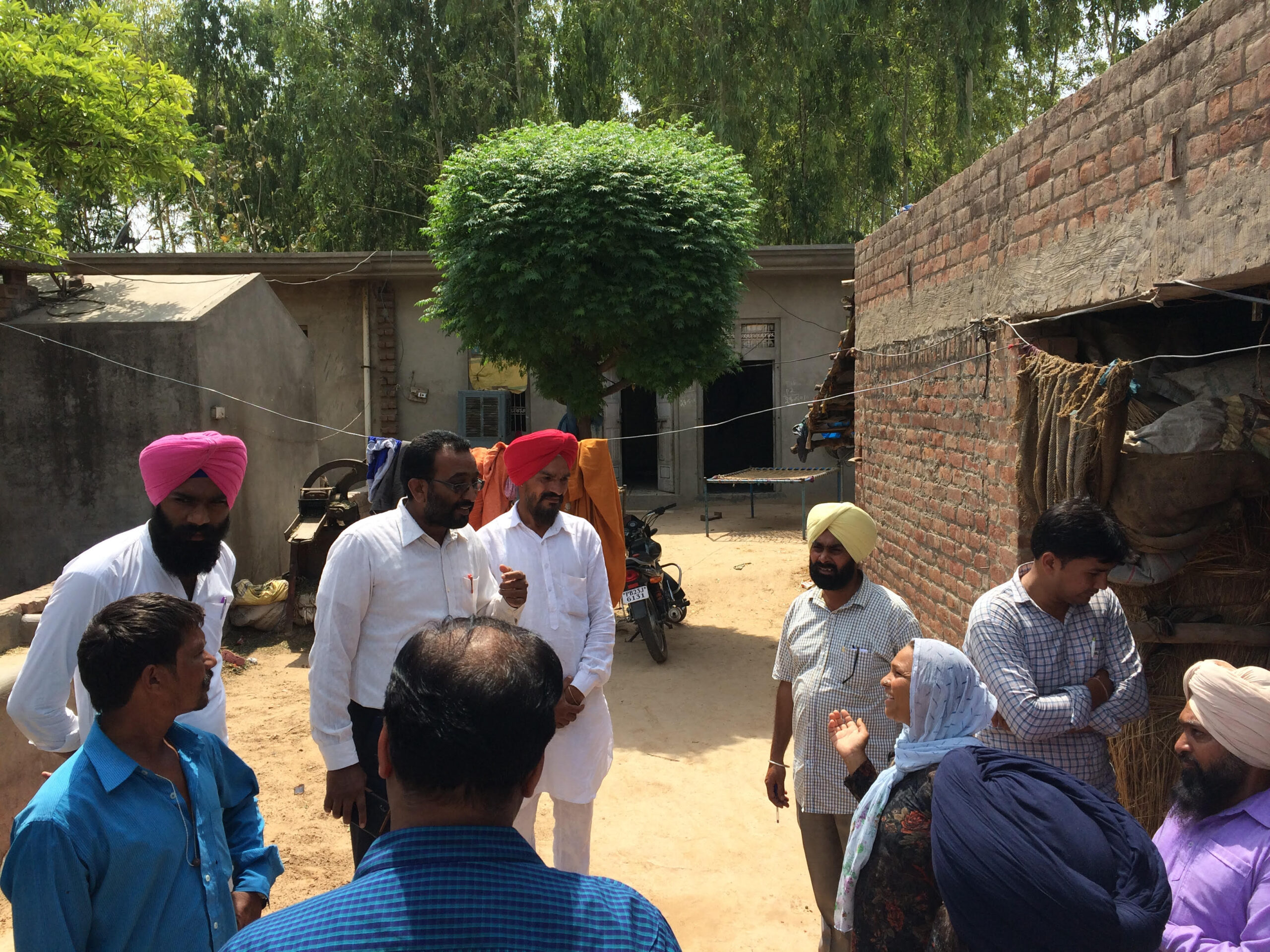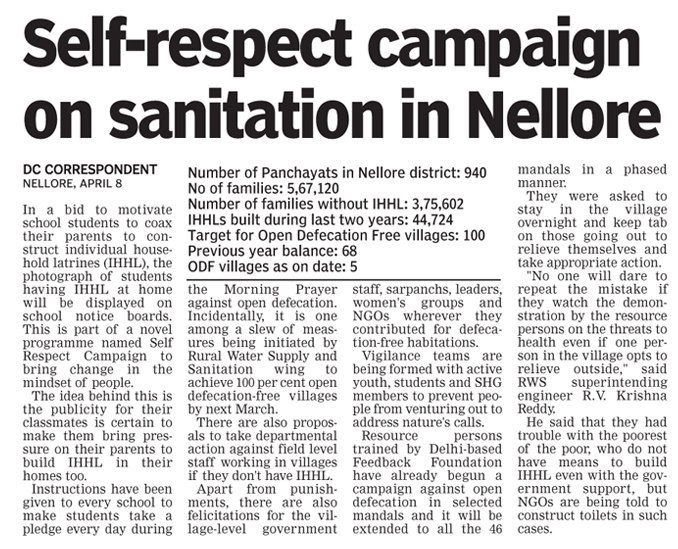We celebrate today three years of Swachh Bharat. This programme caught the imagination of entire country, with everyone feeling, this was long overdue. The Prime Minister made it clear that this was not to be a government programme, but rather a janandolan. Everyone had to be the change himself. The programme took inspiration, afterall, from the Gandhi.
In tune with this vision, the programme started off with a departure from the earlier approach of mere construction of toilets in a supply-driven mode. A new approach, ODF – open daefecation free – was emphasised, where the priority was to engage with the villagers directly and to engage them collectively to change their behaviour. In this approach, derived from the CLTS ( community-led total sanitation) approach of Kamal Kar, rather than a BDO ( Block Development Officer) giving speech on the advantages of toilet from a podium in the village community hall, and offering dole of government subsidy, a facilitator stands with villagers – them covering their noses – at the actual place of open daefecation and leads them in a process of self-analysis, which invariably ends with the conclusion that people are eating their own shit ! This acts as a trigger for a collective resolve and action by the village to end the practice of open daefecation and to construct toilets for themselves. The perspective thus changes from government constructing toilets for the people – which tend to remain unused – to government prioritising behaviour change, with people taking it upon themselves to bring about change. Don’t catch fish for them – teach them how to fish !
The collective ODF approach is based on the premise that health benefits accrue when no one daefecates in the open and looks at sanitation as a public good, rather than a private good. The goal is change of heart of village as a whole, and not construction of x number of toilets.
The word ODF has been defined to have uniform national standards and States have put in place mechanisms for its verification. This tilt of programme from individual to collective, from toilet construction to behaviour change was the most critical achievement of the programme. ODF today is a word of common parlance – from Parliamentarian to a common villager using it, and this vouches for mainstreaming of this concept.
In order to promote this approach, skills of community engagement were seeded slowly but steadily across the implementers, with a special targeting of Collectors, who were to play critical leadership roles in their districts. The Collector has a range of programmes to implement, but thanks to the political prioritisation at the highest level, swachhta has acquired priority in the development agenda for most States and districts.
In brief, the three highlights of Swachh Bharat have been a) the subject catching the attention of everyone, with Prime Minister himself prioritising it b) tilt of programme from individual toilet construction to collective behavioural change and c) penetration of community engagement skills useful for behavioural change.
However, as we approach the 2019 ‘deadline’ – by which a clean India has been envisaged, there is a pressure to show ‘results’. This carries a risk of degeneration of programme once again into a toilet-construction programme. Lest this should happen, focus on quality of ODF Verification may be reemphasised. Each State has its guidelines in place for ODF Verification; in addition Centre is to carry out independent third-party sample verification. The rigour of these verifications should be maintained in order to negate any false positives. Centre should also cross-share best practices amongst States, so that they can learn from each other.
The focus on behavioural change should be maintained. It should be underlined that behaviour change has to precede toilet construction – it cannot follow it. You can make curd from milk, but not vice versa! For this, trainings and retrainings in community approach should continue. These trainings and capacity building should take precedence over conduct of large number of ‘events’ that catch eyeballs and bring publicity, but do little to transform behaviour at the last mile. It is time to remind ourselves of the good old adage ‘work in silence, celebrate in success’.




Absolutely fantastic article. Please keep your good work going, Mr. Nipun Vinayak